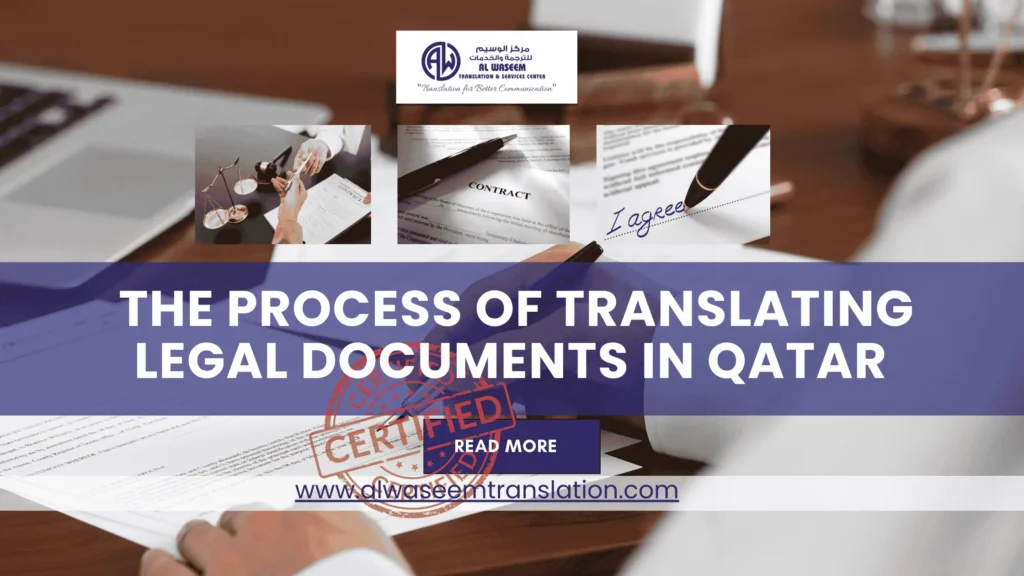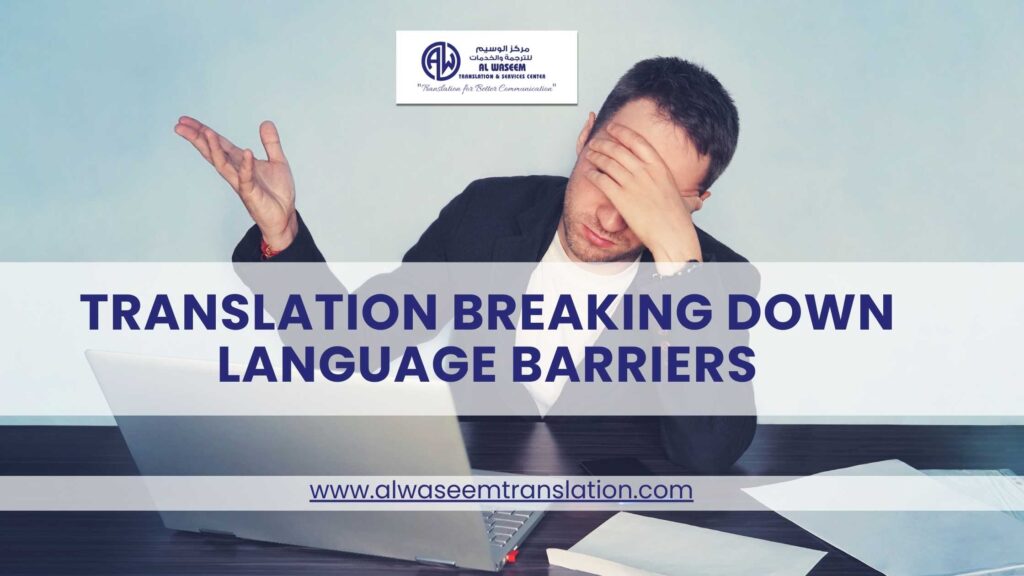Qatar, a small but powerful player in the Middle East, is a prime destination for businesses looking to expand their presence in the region. As one of the world’s wealthiest nations, it offers a lucrative market for local and international companies alike. However, to succeed in Qatar, companies must bridge the language gap. Arabic, the official language of Qatar, is not just a means of communication—it’s deeply intertwined with the culture, values, and identity of the people.
In this context, the importance of accurate Arabic translation cannot be overstated. Whether you’re launching a new product, negotiating contracts, or building your brand, understanding and translating Arabic with precision is key to success.
Why Accurate Arabic Translation is Crucial
Ensuring Effective Communication
Accurate Arabic translation ensures that your message is conveyed clearly and effectively. Miscommunication due to poor translation can lead to misunderstandings, lost deals, or even reputational damage. For businesses targeting the Qatari market, professional translation helps overcome language barriers and fosters smooth communication with local stakeholders.
Building Trust with Qatari Customers
Trust is the foundation of any successful business relationship. In Qatar, showing respect for the local language and culture through accurate translation demonstrates a commitment to serving the local community. This can significantly boost customer loyalty and improve your brand’s image among Qatari consumers.
Enhancing Cultural Understanding
Language and culture are inseparable. When businesses translate their materials into Arabic, they must also consider cultural nuances. This ensures that their messages resonate with the local audience, fostering a deeper connection with customers. Professional translators are trained to navigate these cultural subtleties, providing more than just word-for-word translations.
Qatar’s Language Landscape
Arabic as the Official Language
Arabic is the official language of Qatar, and it’s the language of daily life, business, and government communication. Any company that wants to engage meaningfully with the Qatari population must prioritize Arabic in their communication strategies.
The Linguistic Diversity of Qatar
Although Arabic is predominant, Qatar is home to a diverse population of expatriates. English is widely spoken, especially in business and governmental settings. However, relying solely on English in your marketing or customer outreach can alienate a large portion of the population. Arabic translation helps ensure that your business is inclusive and accessible to all.
English as a Secondary Language in Business
While English is common in Qatar’s corporate world, legal requirements often mandate that certain documents, like contracts and government communications, be in Arabic. This makes professional translation indispensable for legal compliance.
Impact of Arabic Translation on Local Businesses

Targeting Local Audiences
For local businesses in Qatar, speaking the language of your customers is critical. Accurate Arabic translation helps you craft messages that appeal to local tastes, preferences, and cultural norms.
Improving Customer Experience
From websites to product descriptions, providing information in Arabic enhances the customer experience. When customers can read and understand your content in their native language, they’re more likely to engage with your brand and make purchasing decisions.
Complying with Local Regulations
In Qatar, businesses are often required to submit documents in Arabic for legal and regulatory purposes. This includes contracts, marketing materials, and official communications. High-quality Arabic translation ensures that businesses comply with these regulations and avoid costly legal issues.
Why International Businesses Need Arabic Translation
Entering New Markets
For international businesses, expanding into Qatar presents a wealth of opportunities. However, without proper Arabic translation, these opportunities can quickly turn into challenges. Translating your marketing materials, websites, and customer service content into Arabic allows you to reach and engage with Qatari audiences effectively.
Avoiding Costly Misunderstandings
Poor translation can lead to expensive mistakes. Imagine misinterpreting a key contract term or misunderstanding local customs. By investing in professional translation services, international businesses can avoid these pitfalls and ensure that their operations run smoothly in Qatar.
Gaining a Competitive Advantage
Companies that invest in Arabic translation gain a competitive edge in Qatar. Many international firms still overlook the importance of localizing their content for Arabic speakers, which opens the door for businesses that do prioritize it to capture a larger share of the market.
The Role of Arabic Translation in Digital Marketing
Localizing Websites and Apps
Your website is often the first point of contact for potential customers. Localizing your website into Arabic not only helps with accessibility but also boosts user engagement and conversion rates.
SEO Optimization for Arabic-Speaking Audiences
Translating your website and marketing materials into Arabic isn’t enough—you also need to optimize your content for search engines. Arabic SEO ensures that your business appears in local search results, making it easier for Qatari customers to find you online.
Engaging with Social Media Users
Social media is a powerful tool for businesses in Qatar, but to leverage it effectively, you need to speak the language of your audience. Arabic translation helps you engage with Qatari social media users, driving brand awareness and customer interaction.
Industry-Specific Arabic Translation Needs
Legal and Financial Sectors
In highly regulated industries like law and finance, precision is key. Legal documents, contracts, and financial reports must be translated with absolute accuracy to ensure compliance and avoid misunderstandings.
Healthcare and Pharmaceutical Industries
For businesses in healthcare, clear communication is vital. Medical records, instructions, and marketing materials must be translated into Arabic to ensure patient safety and regulatory compliance.
Retail and E-commerce
In the retail and e-commerce sectors, product descriptions, reviews, and customer service interactions need to be translated to enhance customer experience and increase sales.
Common Translation Mistakes and Their Consequences
Literal vs. Cultural Translation
Translating words literally can result in confusing or even offensive content. Professional translators understand the importance of adapting the meaning, tone, and context to fit cultural expectations.
The Dangers of Machine Translation
While machine translation tools like Google Translate are convenient, they often fail to capture the subtleties of language. Relying on these tools for business-critical materials can lead to embarrassing mistakes and misunderstandings.
Losing Brand Meaning
Your brand has a unique voice and identity, which can be lost if translations are done poorly. A professional Arabic translator will ensure that your brand message is preserved while adapting it to resonate with the local audience.
Benefits of Professional Arabic Translation Services
Ensuring Accuracy and Quality
Professional translators provide precise, high-quality translations that convey the intended meaning of your content. This reduces the risk of miscommunication and enhances the overall customer experience.
Navigating Cultural Nuances
Expert translators are trained to understand the cultural context behind the words. This ensures that your message is not only accurate but also appropriate for the local market.
Access to Native Language Experts
Working with native Arabic speakers ensures that your translations are fluent and natural, rather than stiff or awkward. This is particularly important when creating marketing and advertising content.
How Arabic Translation Affects Customer Relationships
Building Long-Term Loyalty
Customers are more likely to trust and remain loyal to brands that communicate with them in their native language. By offering Arabic-language support and content, businesses can cultivate deeper relationships with Qatari consumers.
Creating Personalized Experiences
Localization is all about making the customer feel understood. Translating your content into Arabic allows you to tailor your messaging to individual customer needs and preferences, fostering a more personal connection.
Providing Customer Support in Arabic
Customer service is a key part of the customer experience. Offering support in Arabic shows that your business values its Qatari customers and is committed to meeting their needs.
Legal and Compliance Implications
Government Communication in Arabic
Government agencies in Qatar communicate primarily in Arabic. For businesses to interact with these agencies effectively, they must translate all official documents into Arabic.
Language Laws and Requirements in Qatar
Certain industries, such as healthcare and legal services, have strict requirements for documentation to be in Arabic. Failure to comply with these regulations can result in fines or legal penalties.
Ensuring Contracts and Legal Documents Are Accurately Translated
Mistakes in legal translations can lead to costly disputes. Professional translators ensure that your contracts and other legal documents are accurately translated, protecting your business from unnecessary risks.
Arabic Translation for Marketing and Advertising
Tailoring Marketing Campaigns
Effective marketing is all about delivering the right message to the right audience. By translating your marketing campaigns into Arabic, you ensure that your content resonates with Qatari consumers and drives engagement.
Cultural Sensitivity in Advertising
In Qatar, where culture and tradition are highly valued, businesses must ensure that their advertising is culturally sensitive. A professional Arabic translator can help you avoid offensive or inappropriate content, ensuring that your campaigns are well-received.
Case Studies of Successful Campaigns
Numerous companies have successfully entered the Qatari market by prioritizing Arabic translation. These case studies highlight the importance of localization in marketing and demonstrate the positive impact it can have on business growth.
The Growing Demand for Bilingualism in Qatar
The Rise of Bilingual Professionals
As Qatar continues to develop, the demand for bilingual professionals who are fluent in both Arabic and English is growing. This trend underscores the importance of translation services in bridging language gaps.
Arabic-English Proficiency in the Workforce
For businesses operating in Qatar, having a workforce that is proficient in both Arabic and English is a valuable asset. Bilingual employees can facilitate communication and ensure that your company’s content is accurately translated.
Importance of Translation for Internal Communication
In multinational companies, translation is often needed for internal communications, ensuring that all employees, regardless of their native language, are on the same page.
Choosing the Right Arabic Translation Service
Key Factors to Consider
When choosing a translation service, businesses should consider factors such as the translator’s qualifications, experience in the industry, and understanding of cultural nuances.
Certification and Qualifications
Look for translation services that offer certified translators with experience in your specific industry. Certification ensures that the translator has the necessary skills to provide accurate, high-quality translations.
Costs vs. Quality Trade-Offs
While cost is always a consideration, businesses should prioritize quality over price. Inaccurate translations can lead to costly mistakes, making it essential to invest in professional services.
Conclusion
In Qatar’s competitive business landscape, Arabic translation is no longer a luxury—it’s a necessity. Whether you’re a local business looking to connect with your audience or an international company expanding into the Qatari market, investing in accurate and culturally sensitive Arabic translation services will give you a significant advantage. Not only does it help you communicate effectively, but it also builds trust, ensures legal compliance, and enhances customer relationships.
FAQs
Why is Arabic translation important for businesses in Qatar?
Arabic translation is critical for effective communication, cultural understanding, and compliance with local regulations in Qatar.
Can I rely on machine translation for my business needs in Qatar?
No, machine translations often lack accuracy and fail to capture cultural nuances, leading to misunderstandings and errors.
What industries in Qatar require specialized Arabic translation?
Legal, healthcare, financial, retail, and e-commerce sectors all require precise and professional Arabic translation.
How can Arabic translation improve customer relationships?
Offering content and support in Arabic shows respect for local customers, builds trust, and enhances loyalty.
What should I look for in a professional Arabic translation service?
Look for certified translators with industry experience, cultural expertise, and a focus on quality over cost.



